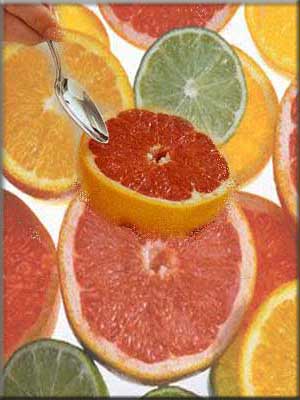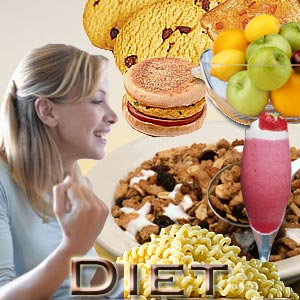Fad Diet

With increasing instances of obesity, it has been observed that many a diet plan is propounded to help people shed off the extra pounds. There is no dearth of fad diets that claim weight loss within a week or two. Most of them are nutritionally skewed and can lead to starvation and other side effects.
Maintaining a healthy body weight is more about balancing your eating pattern alongside your body requirements and physical activity. If you are looking at a diet that promises quick weight loss and instant success for all, chances are that it is a fad diet program. Severe caloric restrictions and elimination of entire food groups are indicative of a fad diet.
Fad Diets
Fad diets involve restricted eating that can be nutritionally lopsided and thereby lead to insufficient calories and nutritional deprivation. Fad diets range from liquid-only diets to low carbohydrate diets to high protein diets or even diets that concentrate on a single food item such as grapefruit diet or cabbage soup diet.
Fad diets cause quick weight loss, due to water loss from the body. Most fad diets are short term and claim to work wonders in limited time periods. Due to their monotonous nature, many people do not stick to it. Extra body weight that has been acquired over a period of time cannot be shed with quick solutions. The key to good weight management is balanced nutritional elements in a calorie-controlled diet.
This coupled with a good fitness regimen can help you shed the extra weight and keep it off. Fad diets may show some loss of weight on account of the severely restricted calorie intake. But it can lead to health complications if carried on for a long period of time. Besides, following some fad diet or the other constantly can lead to yo-yo dieting.
Cabbage Soup Diet
The cabbage soup diet is an example of fad diet that promises to help shed off nearly 10 pounds in a week. This 7-day diet involves cabbage soup along with a variety of vegetables. The cabbage soup diet is rigid in that it advocates consumption of large quantities of cabbage soup with the claim that it burns fat. Lunch consists of plenty of cabbage soup with raw or cooked vegetables. Dinner is just a baked potato with butter. Though cabbage is a healthy vegetable, it cannot supplement the body with all the essential nutrients. Bread, carbonated drinks and alcohol are to be avoided when on a cabbage soup diet. This diet nearly causes starvation in some people and the loss of weight is due to loss of water and not fat reserves.
Grapefruit Diet
The grapefruit diet rests on the premise that grapefruit has fat burning properties. This diet is spread over a period of 12 days. The principle component of this diet is grapefruit - a fat-free fruit that is low in calories and packed with Vitamin C. Pink grapefruits also contain beta-carotene. According to the grapefruit diet, most meals are accompanied by grapefruit. Snacking between meals is not allowed.
A typical grapefruit diet breakfast consists of eggs, bacon and half a grapefruit accompanied by coffee or tea. Most vegetables are allowed but complex carbohydrates are not. On account of the low caloric value of the grapefruit diet, lack of energy and dizziness is experienced. This fad diet is deficient in sufficient calcium, vitamins and iron that are essential for the body. This can lead to severe nutritional deficiency.
Negative Calorie Diet
Negative calorie diet is a good example of a fad diet that offers excessively low calorie content. Foods such as beets, broccoli, green cabbage, carrots, cauliflower and asparagus are consumed in this negative calorie diet. Fruits such as apples, blueberries and cranberries are allowed as part of this diet that creates a negative caloric effect since more calories are burned during digestion than gained from food intake. The foods that are listed out in the negative calorie list are ideal for snacks but basing your entire diet on them may not be nutritionally adequate.
Blood type Diet
The Blood type diet is another example of fad diet wherein a person's blood type determines the kind of foods that should become part of his diet. Different people may have varied nutritional needs based on variables such as health conditions, vocation and illness. Dietary requirements are individualistic - there can be no one size that fits all. According to the Blood type diet, type A persons are naturally vegetarians and type B persons should balance their diet between plant and animal proteins. type O persons typically ate red meat and other high protein food.
Metabolism Diet
The metabolism diet is yet another example of fad diet that seeks to increase your metabolism. Persons on a metabolism diet are required to eat certain food at certain times so as to boost their body metabolism and thereby shed weight. Breakfast is black tea or coffee with low calorie sweetener. Lunch in a metabolism diet can consist of 2 hard-boiled eggs and cooked spinach.
Dinner consists of a salad of lettuce and celery along with steak. As is the case with most fad diets, the metabolism diet is also severely deficient in calories. Sensible eating is the best way to maintain body weight. A healthy weight can be achieved with a healthy lifestyle - good eating habits coupled with sufficient level of physical activity.
Top of the Page: Fad Diet
Tags:#fad diet #grapefruit diet #cabbage soup diet #blood type diet #negative calorie diet

Therapeutic Lifestyle Changes Diet
Intermittent Fasting Plan
Flexitarian Diet
Dukan Diet Plan
Diet Plateau
High Protein Diet
Elimination Diet
Raw Food Diet
Paleo Diet
Liver Cleansing Diet
Intermittent Fasting Diet
Low Fat Low Cholesterol Diet
Low Carb Diet
Vegan Diet Plan
Hay Diet
Sacred Heart Diet
Heart Attack Diet
Diet after Gastric Bypass
RICE Diet
Gluten Free Diet
Acid Reflux Diet
Detox Diet
Sonoma Diet
Glycemic Index Diet
Montignac Diet
Diabetic Diet Plan
Healthy Breastfeeding Diet
Negative Calorie Diet
Fad Diet
Blood Group Diet
Diverticulitis Diet
DASH Diet
Ornish Diet
3 Day Diet Strategy
Ketogenic Diet
Zone Diet Plan
Anti Aging Diet
South Beach Diet
Gall Bladder Diet
Low Cholesterol Diet
Low Sodium Diet
Diet and Kidney Disease
Scarsdale Diet Plan
Macrobiotic Diet
Osteoarthritis Diet
Depression Diet Plan
Migraine Diet
Restricted Salt Diet
Gout Diet
Rotation Diet
Diet Cancer Patient
Ways to better Health

Boost Metabolism
BMI Calculator
Low Fat Dessert
Whey Protein
Diet and Fitness
Fitness Exercise Articles
Cardio Workout
Aerobics
Yoga
Body Toning
Top of the Page: Fad Diet
Popularity Index: 101,798

